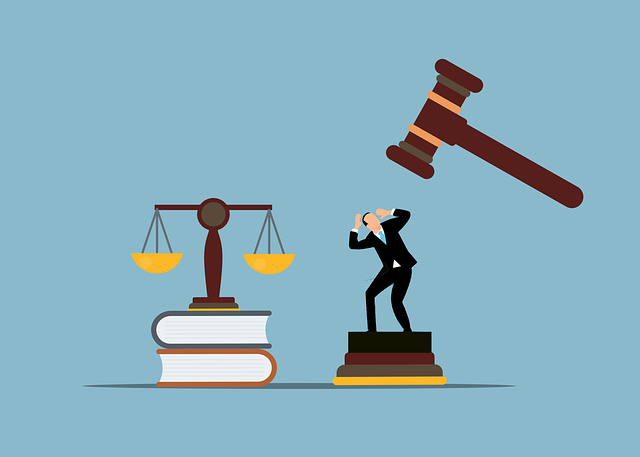Oregon's comprehensive Oregon criminal defense laws and legal statutes provide a robust legal framework protecting individuals within the state's justice system. Key aspects include the presumption of innocence, due process rights, recognized defenses like self-defense, and clear guidelines for evidence handling. Understanding these Oregon defense regulations is crucial for both accused persons and their legal representatives to navigate proceedings fairly, ensuring individual rights and public safety are balanced.
“Navigating Oregon’s Complex Criminal Justice System: A Comprehensive Guide to Defense Laws. This article serves as your ultimate resource for deciphering Oregon’s intricate legal framework, especially tailored for those facing criminal charges. From the moment of arrest to trial and beyond, we demystify the process, highlighting key rights, defense options, and recent updates. Understanding Oregon legal statutes is crucial for ensuring a fair trial; this guide ensures you’re equipped with knowledge. Explore Oregon criminal defense laws, gain insights into defense regulations, and learn about your rights in this detailed step-by-step analysis.”
- Oregon Criminal Defense Laws: Overview and Key Principles
- – Definition of criminal defense in Oregon
- – Purpose and scope of Oregon's criminal defense laws
- – Basic rights guaranteed to accused individuals
Oregon Criminal Defense Laws: Overview and Key Principles

Oregon’s criminal defense laws form a robust legal framework that protects individuals accused of crimes within the state. These laws are codified in the Oregon Legal Statutes, providing a comprehensive set of rules and guidelines for both law enforcement and defendants. Understanding these defense regulations is crucial for anyone navigating the Oregon justice system.
At its core, the legal framework emphasizes several key principles. The criminal defense basics in Oregon include the presumption of innocence, where an accused person is considered innocent until proven guilty beyond a reasonable doubt. This principle ensures that the burden of proof rests squarely on the prosecution. Additionally, Oregon’s laws safeguard defendants’ rights to due process, ensuring they are treated fairly throughout the legal proceedings. The state also recognizes various defenses, such as self-defense and lack of intent, which can potentially lead to acquittal or reduced charges.
– Definition of criminal defense in Oregon

In Oregon, the legal framework governing criminal defense is defined by a comprehensive set of laws and regulations known as Oregon criminal defense laws. These laws outline the rights and procedures for individuals facing criminal charges, ensuring fairness and due process throughout the legal process. Understanding Oregon laws is crucial for both accused persons and their legal representatives, as it forms the basis for building robust defenses and navigating the state’s justice system effectively.
The basics of criminal defense in Oregon involve a range of strategies, from challenging the admissibility of evidence to questioning the legality of police actions during an arrest. Oregon legal statutes provide specific guidelines on issues such as self-defense, stand-your-ground laws, and the handling of evidence, all of which play significant roles in shaping robust defenses. By understanding these regulations, individuals can better comprehend their rights and take proactive measures to protect themselves within the legal framework.
– Purpose and scope of Oregon's criminal defense laws

Oregon’s criminal defense laws are a robust and intricate network designed to safeguard individuals from unjust prosecution while ensuring public safety. The legal framework provides a set of guidelines and protections for those accused of crimes, outlining the responsibilities of law enforcement, prosecutors, and judicial officers. These laws are enshrined in Oregon legal statutes, offering a comprehensive guide to criminal defense basics, including the rights of the accused, permissible defenses, and due process procedures.
Understanding Oregon’s defense regulations is crucial for both residents and visitors alike, as it shapes the course of criminal cases within the state. The legal framework emphasizes a balanced approach, aiming to protect the rights of the individual while holding perpetrators accountable for their actions. By navigating these laws, individuals can better comprehend their options, ensure fair treatment, and make informed decisions during legal proceedings.
– Basic rights guaranteed to accused individuals

In Oregon, the legal framework surrounding criminal defense is governed by a comprehensive set of statutes and regulations designed to protect the rights of accused individuals. At its core, Oregon criminal defense laws ensure that those facing criminal charges are afforded basic constitutional rights. These include the right to remain silent, the right to an attorney, and the right to a fair and impartial trial. Understanding these fundamental principles is crucial for anyone navigating the Oregon legal system.
Oregon’s legal framework provides robust protections for criminal defendants, reflecting a commitment to fairness and justice. The state’s defense regulations outline procedures for investigating crimes, gathering evidence, and ensuring that accused persons are treated fairly throughout the legal process. By understanding Oregon laws, individuals can better comprehend their rights and obligations in the event of a criminal accusation, enabling them to make informed decisions regarding their legal representation and strategy.
